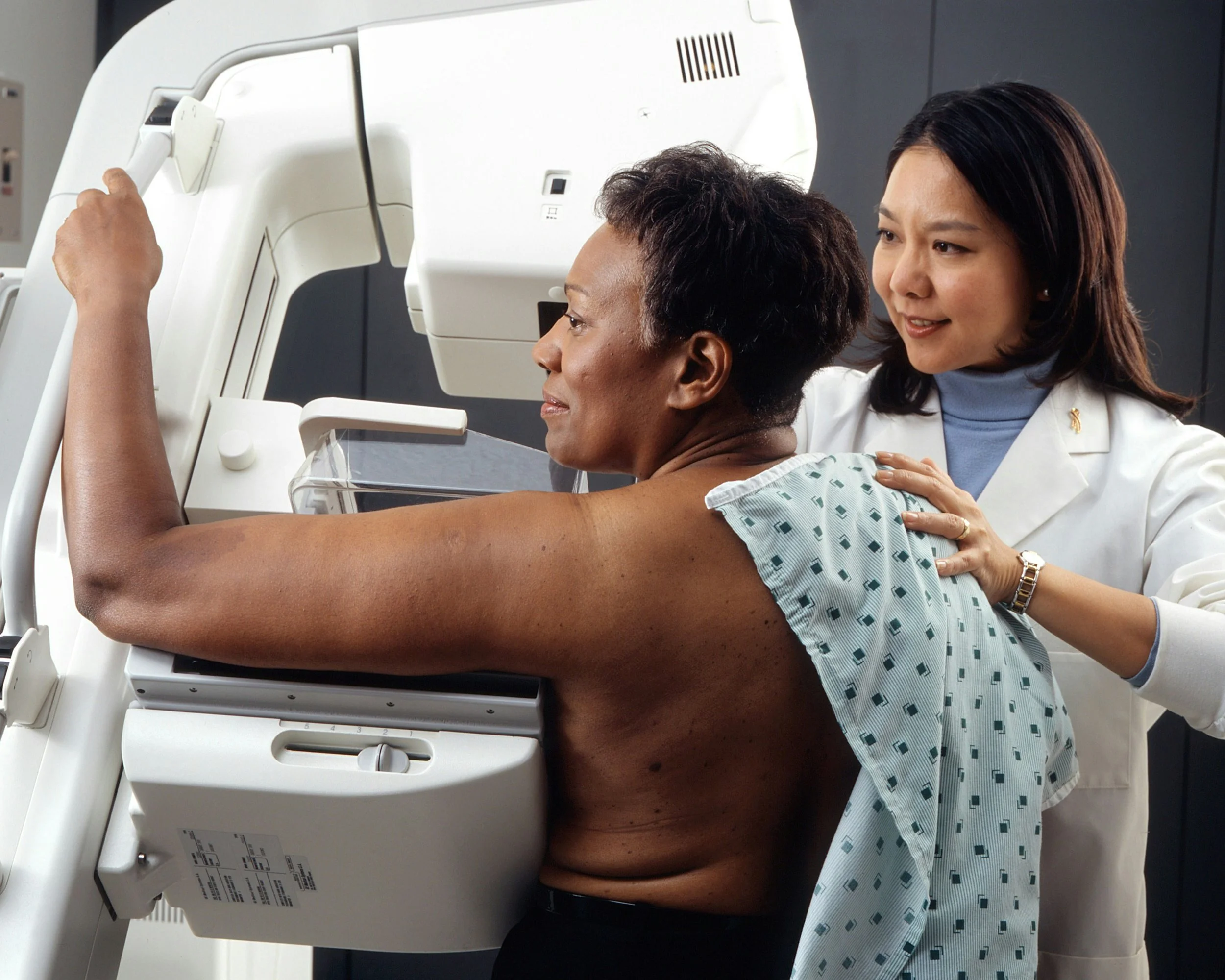The Importance of Preventive Care for Women’s Health
Dr. Libby Joffe and Dr. Zhanna Branovan, board-certified internal medicine physicians at Advanced Internal Medicine of North Jersey, offer expert insight into the importance of preventive care for women at every stage of life. Through personalized concierge care, they provide direct communication, individualized screening plans, and proactive strategies to support long-term health. From routine mammograms and Pap smears to bone density scans and lifestyle counseling, their tailored approach empowers women to stay ahead of potential health issues and build a strong foundation for lifelong wellness.
When it comes to building a long, healthy life, preventive care is one of the most powerful tools available, especially for women. Many health conditions that affect women, from breast and cervical cancer to osteoporosis, can develop gradually and without obvious symptoms. But by staying ahead of potential risks through early screenings, personalized care, and healthy habits, women can take meaningful steps toward long-term wellness.
At Advanced Internal Medicine of NJ, we believe that you deserve care that goes beyond the basics—care that sees you as a whole person, not just a set of symptoms. Our concierge care model is designed around your individual health needs, lifestyle, and goals, providing you with consistent, tailored support at every stage of life.
In this blog post, we’ll explore some of the most important preventive care strategies for women and offer practical steps you can take to stay informed, supported, and proactive about your health.
Why Preventive Care Matters
Preventive care isn’t just about avoiding illness—it’s about building a strong foundation for wellness that evolves with you. Women experience unique health transitions across different stages of life, from adolescence to menopause and beyond. Having a long-term relationship with a provider who knows your history and listens closely can make all the difference in identifying subtle changes and responding with personalized solutions.
Routine screenings can detect serious health issues before they escalate, giving you more treatment options and a better chance at positive outcomes. But beyond screenings, preventive care also includes lifestyle guidance, stress management, chronic condition monitoring, and open communication with your care team—all of which are integral to the concierge care experience.
Mammograms: Early Detection That Saves Lives
Breast cancer remains one of the most common cancers among women, but with early detection, outcomes can significantly improve. Mammograms are one of the most effective tools for early detection, identifying abnormalities before symptoms arise.
What You Need to Know:
Mammograms use low-dose X-rays to examine breast tissue for tumors or changes.
Early detection often means more treatment options and less invasive interventions.
Personalized care helps determine when and how often you should be screened based on your risk factors.
Screening Guidelines:
Women ages 40 to 44 may begin annual mammograms if they choose.
Women 45 to 54 are recommended to have mammograms every year.
From age 55 onward, screenings should continue yearly, depending on your preferences and provider’s recommendations.
What You Can Do:
Schedule regular mammograms based on your provider’s guidance.
Perform monthly self-exams to stay familiar with how your breasts typically feel and look.
Talk with your doctor about your family history or genetic risks (such as BRCA1 or BRCA2), which may warrant earlier or more frequent screenings.
At Advanced Internal Medicine of North Jersey, our concierge model ensures that these conversations aren’t rushed. You have dedicated time with your physician to fully explore your risk factors and create a screening plan that works for you.
Pap Smears and Cervical Health
Cervical cancer used to be one of the leading causes of cancer death for women, but thanks to routine Pap smears and HPV vaccinations, it is now largely preventable. Still, regular screening is crucial.
The Role of Pap Smears:
A Pap smear detects abnormal cells in the cervix, which are often linked to human papillomavirus (HPV)—a common virus that can lead to cervical cancer if untreated. When caught early, these cell changes can be monitored or treated before becoming cancerous.
Screening Recommendations:
Start Pap smears at age 21.
Women ages 21–29: Pap test every three years.
Women ages 30–65: Pap test every three years, or HPV test every five years, or both.
Ways to Stay Proactive:
Stay consistent with screenings, even if you feel well—many cervical changes show no symptoms.
Consider the HPV vaccine if you're under 26, or speak with your doctor about whether it's right for you.
Practice safe habits and make time for routine check-ins.
Our concierge patients benefit from timely reminders, open communication, and coordination with specialists when needed, helping you stay on top of your cervical health without the stress of fragmented care.
Bone Density: Protecting Long-Term Strength
As women age, they become more susceptible to osteoporosis—a condition where bones become brittle and more likely to fracture. This is especially common after menopause due to shifts in hormone levels.
Why Bone Health Matters:
Osteoporosis is often called a “silent disease” because it progresses without noticeable symptoms until a fracture occurs. But DEXA scans (bone density tests) can identify bone loss early and help you take steps to maintain strength and balance.
When to Be Screened:
Women 65 and older should have a bone density scan.
Younger women with risk factors (family history, early menopause, certain medications) may need earlier testing.
How to Strengthen Your Bones:
Eat a calcium-rich diet including dairy, leafy greens, and fortified alternatives.
Supplement with vitamin D to help your body absorb calcium.
Incorporate weight-bearing exercises like walking, resistance training, and yoga.
Avoid smoking and limit alcohol, which can weaken bones over time.
What Makes Concierge Preventive Care Different?
Many people are used to fast, impersonal care, where appointments are rushed and follow-ups are sporadic. But your health deserves more than a quick fix.
With concierge care at Advanced Internal Medicine of NJ, you receive:
Longer, unrushed appointments
Direct communication with your doctor between visits
A care plan tailored to your needs and preferences
Support that evolves with you, including during major life transitions like pregnancy, menopause, or chronic condition management
This model is especially beneficial when it comes to preventive care. It allows for deeper conversations, thorough reviews of your medical history, and truly individualized guidance. You're not just checking boxes—you're building a long-term health partnership.
Putting It All Together
Preventive care isn’t just about avoiding illness—it’s about choosing to live fully and confidently. With a proactive mindset, personalized screenings, and a care team that truly listens, you can feel supported in every aspect of your health.
Key Takeaways:
Don’t wait for symptoms—schedule screenings based on your age, family history, and lifestyle.
Focus on healthy habits that support your long-term well-being.
Choose a care model that values your time, history, and goals.
Build a lasting relationship with a provider who understands you—not just your chart.
Ready to Prioritize Your Health?
If you're ready to experience care that’s truly built around you, we’re here to help. At Advanced Internal Medicine of NJ, our concierge services offer a level of consistency, communication, and personalization that standard care often lacks.
Whether you’re scheduling your next mammogram, reviewing your bone health, or just want to talk through your wellness goals, our team is ready to support you with thoughtful guidance and compassion.
Book your consultation today and take the first step toward a healthier, more empowered you.





